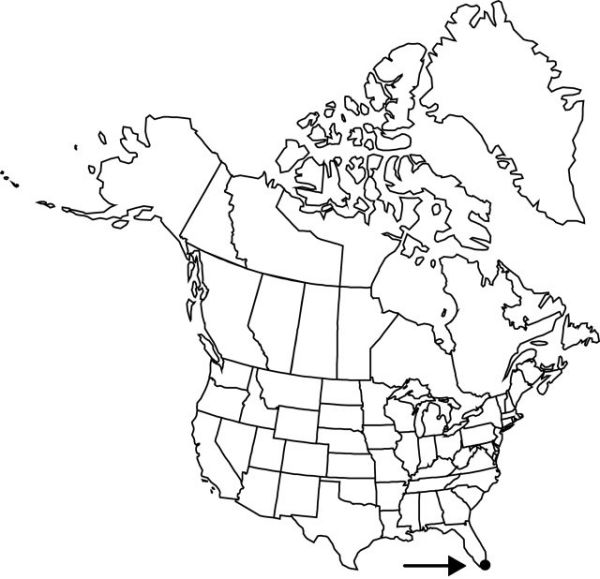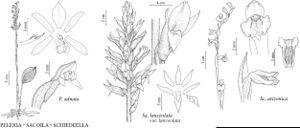Pelexia adnata
Syst. Veg. 3: 704. 1826.
Plants cespitose, to 70 cm. Roots 3–8 mm diam. Leaves 2–7, erect; petiole 12–16.5 cm; blade elliptic to lanceolate, 7.5–14 × 3–5.5 cm, margins entire, apex acuminate. Inflorescences scapose racemes, pubescent; floral bracts linearlanceolate, as long as flower or longer, apex acuminate. Flowers: dorsal sepal green, broadly ovate to elliptic, 5–6 × 3–4 mm, apex obtuse, pubescent; sepals gently recurved, narrowly elliptic, 5–6 × 1.5 mm, apex obtuse, pubescent; lateral sepals adnate to column-foot forming spurlike mentum, mentum adnate to ovary, only partially free near tip, 6–7 mm; petals green, linear to linear-oblanceolate, 5 mm, apex obtuse, glabrous; lip white with yellowish throat, constricted at or distal to middle; apical half abruptly geniculate, fleshy, 5–6 mm, tip recurved, glabrous; column to 6 mm, column-foot produced basally, decurrent along ovary, to 7 mm; viscidium ovate; pedicellate ovary erect-spreading, 10–11 mm, pubescent. Capules ellipsoid, 12–17 mm.
Phenology: Flowering Mar–May.
Habitat: Understory of moist, hardwood hammocks
Elevation: 0–20 m
Distribution

Fla., Mexico, West Indies, Central America, n South America
Discussion
Phenology is based on observations in the Greater Antilles.
Plants of Pelexia adnata formerly found in a tropical hardwood hammock in Florida have not been seen recently and are probably extirpated (Edwin Bridges, pers. comm.).
Selected References
None.
